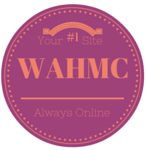Applying for a work at home job is a little different than applying for traditional employment. For one, a face-to-face interview is rare and, therefore, your resume and work history will have to speak loud and clear about who you are and what you can do. Also, there are a few tools that aren’t must-haves in the real world, but are top list items if you plan to work in the virtual world.
A few of these include:
An email address – While most people have one of these, a dedicated email address for professional use is helpful. Having a separate address gives you the option of having a professional presence (which sounds more professional, SuperSoccerMom at xyz dot com or ProfessionalServices at xyz dot com?). Further, a dedicated email address helps you keep your business and personal correspondence completely separate. While you can purchase your own domain with a personal email address, free ones like Gmail or Yahoo work just as well as long as they’re kept separate from your personal account.
A PayPal account – While most traditional employers pay employees with a paycheck and a few pay by direct deposit, a good number of virtual employers pay via PayPal. A few are very strict in advertising that they will ONLY pay via PayPal and that having an account is mandatory. You’ll find that setting up a PayPal account is free, easy and its services are quite convenient. Your account can be linked to your regular bank account for an easy transfer of funds and you can even request a PayPal debit card in order to spend money directly from your PayPal account if you so desire.
A PC with high speed Internet access – While a few employers will hire MAC users, most require workers to have a PC and in all cases, employers prefer hiring those with a high speed Internet connection as opposed to dial-up.
Other optional tools you may want to consider are:
A tax identification number – It’s natural to feel uneasy about supplying your social security number on an online application. Internet fraud is not a figment of the imagination and to protect one’s self, it is advisable to apply for a tax identification number (also known as an Employee Identification Number or EIN) for free from the IRS website.
A corporate entity – While you can work as an individual employee, or a sole proprietor, you may want to consider creating and incorporating a company…particularly if you will be working as an independent contractor or running your own business (which we’ll discuss in further detail later). Such not only protects your privacy, but may place limits on your personal liability, your tax responsibilities and adds to your professional image. This can be costly, so if you cannot afford to do so right away, keep it in the back of your mind for now, gather information and educate yourself on what is available to you, and do keep it in mind for the future.
A dedicated business number or phone line – Call center jobs will require this, but even beyond these, it is a good idea to have a business line. If you will not be making a lot of outbound calls, you may want to consider a Skype line or, at the very least, getting a virtual phone number from GoogleVoice or another provider. Again, protecting your privacy is important, which is why we recommend virtual phones and numbers, which are virtually untraceable to a home address.
A mailbox – No, not the one that’s in front of your house or apartment, but a private mailbox through a commercial service. This can be a post office box or a box rented from a local commercial service where you’re offered a regular street address and assigned a box number. The latter is not automatically recognized as a mailbox and, while there’s nothing wrong with using a P.O. box (though some businesses will reject your use of one as a main address), a commercial mailbox can give you the luxury of a business address without having to pay rent on a commercial space.
Business cards – These are not mandatory, but if you’re doing business as a freelancer or running a small business, they certainly are good tools for networking efforts. We recommend that you take a look at Vista Print for free business cards (though you will need to pay for shipping and handling).
Social networking accounts – Again, not mandatory, but very helpful. Just as networking is important in a traditional workforce, it is also very important for virtual workers. You may already have personal Facebook, Twitter and other social networking accounts, and these may be fine to use for business, but opening accounts strictly for business use should also be considered. This way, you can keep in touch with employers, co-workers and clients without broadcasting your personal business to each. Working at home is also a very lonely job at times and having accounts where you can interact with others in your industry is very helpful.
Depending upon the type of employment you are seeking you may need more tools or you may need fewer. Still, it is a good idea to have all of these on deck before you venture into the world of virtual employment so that you won’t have to scramble to gather them later. Positioning yourself for business at the beginning of your journey prepares you for success in the future!


One comment
Comments are closed.